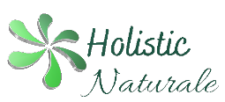What is Iron ?
Iron is a mineral which is required by the body for growth and development. Iron has many benefits including reducing tiredness, maintaining an efficient and healthy immune system and treating anaemia.
Why should I take Iron?
- Haemoglobin Formation. Iron is an essential component of haemoglobin, this is the protein in red blood cells which carries oxygen from the lungs to the organs and tissues.
- Treats Anaemia. Iron-deficiency anaemia is when the level of haemoglobin in the blood drops resulting in a reduction in the oxygen carrying capacity of the blood. This leads to tiredness and fatigue.
- Improves Muscle Endurance. Iron is also found in myoglobin, which is the form of haemoglobin found in muscle tissue. It therefore increases the oxygen supply to the muscles thus supporting muscle metabolism and maintaining healthy connective
- Boosts Immunity. Iron strengthens the immune system as it produces haemoglobin. This ensures adequate oxygen is carried to damaged cells, tissues, and organs and is necessary for the body’s ability to fight diseases and infections. Low iron levels result in impaired immune function.1
- Improves Concentration. Studies have shown that when blood iron levels drop, concentration and attentiveness are almost immediately reduced. Restoring iron levels restored to the normal range can improve concentration and boost cognitive performance.2
Good sources of iron
Dietary sources of iron come in two forms: heme iron, found in animal sources such as and nonheme iron, found in whole grains, nuts, dried fruit, dark green vegetables, lentils, legumes, brewer’s yeast, tofu, and fortified cereals. The body absorbs heme iron somewhat more easily than it does nonheme iron; however, if you eat nonheme iron along with heme iron foods or foods containing vitamin C, iron absorption greatly improves.
Iron is found naturally in many foods and is added to some fortified food products. Good sources of iron include:
- Liver, red meat, poultry and seafood
- eggs
- legumes, such as beans, red kidney beans, and chickpeas
- wholegrains, lentils
- nuts and dried fruit, such as dried apricots
- dark green vegetables
- fortified breakfast cereals
Dietary iron comes in two forms: heme iron and nonheme iron. Nonheme iron is found in plant foods and iron-fortified food products. Meat, seafood, and poultry contain both heme and nonheme iron.
Your body absorbs heme iron more easily than it does nonheme iron; however, if you eat nonheme iron along with heme iron foods (e.g. red meat, poultry or seafood) or foods containing vitamin C (such as citrus fruits, strawberries or red peppers).
How much iron do I need?
The amount of iron you need is:3
- 8mg a day for men over 18
- 18mg a day for women aged 19 to 50
- 8mg a day for women over 50
- Pregnant women: 27mg
- Breast-feeding Women: 9mg
You should be able to get all the iron you need from your daily diet.
Women who have heavy periods are at a higher risk of iron deficiency anaemia and may need to take iron supplements. Speak to your doctor for more advice
What happens if I don’t get enough iron?
In the short term, getting too little iron does not cause obvious symptoms as the body uses its iron stores in the muscles, liver, and bone marrow. When the iron stores in the body become depleted, iron deficiency anaemia occurs. Red blood cells become smaller and contain less haemoglobin. As a result, blood carries less oxygen around the body leading to fatigue.
Symptoms of iron deficiency anemia include gastrointestinal upset, weakness, tiredness, lack of energy, and problems with concentration and memory. In addition, people with iron deficiency anemia have an impaired immune system, and have difficulty exercising. Infants and children with iron deficiency anaemia may develop learning difficulties.
Iron deficiency can have many causes, menstruation being the most common for adult women. Some people have a greater need for iron, including individuals who have hemorrhoids, bleeding stomach ulcers, Crohn’s disease, or other conditions that cause poor absorption of iron or abnormal blood loss.
What happens if I take too much iron?
Side effects of taking high doses (over 20mg) of iron include constipation, nausea, vomiting and stomach pain
Very high doses of iron can be fatal, particularly if taken by children, so always keep iron supplements out of the reach of children. Accidental overdose of iron-containing products is a leading cause of fatal poisoning in children under 6.
Possible interactions
Iron supplements can interact or interfere with medicines and other supplements you take. Certain foods and medicines can contribute to iron deficiency, including tea, coffee, soy-based products, tetracyclines, and antacids, as well as high doses of calcium, zinc, and manganese supplements.
Iron supplements can interact with several medicines thus affecting their effectiveness. These include levodopa (used for Parkinson’s disease), levothyroxine and proton pump inhibitors (such as omeprazole and lansoprazole).
Speak to your doctor or pharmacist before starting an iron supplement.
Which iron supplements should I buy?
Iron is available in many multivitamin supplements and in supplements that contain only iron. Iron in supplements is often in the form of ferrous sulfate, ferrous gluconate, ferric citrate, or ferric sulfate. Look for a product that contains ferrous fumarate, ferrous peptinate, or iron glycinate, in liquid or tablets. These forms are less likely to cause constipation and indigestion than other forms.
Iron supplements can be found here.

